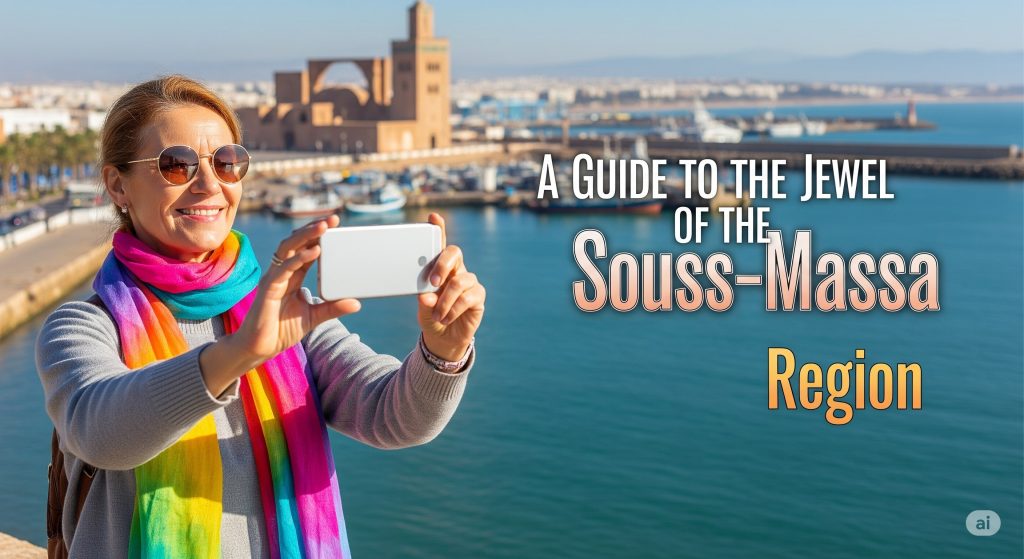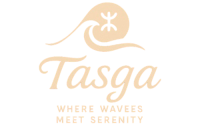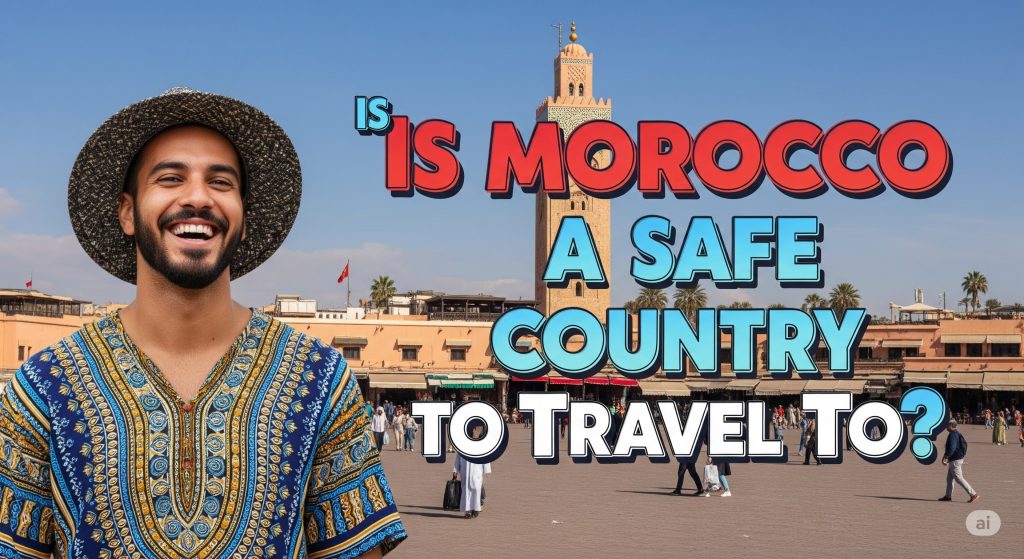Morocco, a land of captivating contrasts, vibrant culture, and breathtaking landscapes, has long beckoned travelers from across the globe. From the bustling souks of Marrakech to the serene blue streets of Chefchaouen, the ancient medinas of Fes to the golden dunes of the Sahara, its allure is undeniable. However, like any foreign destination, prospective visitors often ponder a crucial question: “Is Morocco a safe country to travel to?” The resounding answer, when approached with awareness and respect for local customs, is a confident yes. Morocco has made significant strides in prioritizing tourist safety, offering an enriching and largely secure experience for millions of annual visitors.
A Stable Nation with a Focus on Tourism
Morocco distinguishes itself as a politically stable nation in a region often characterized by volatility. Under the consistent leadership of King Mohammed VI, the country has fostered an environment conducive to growth, including a robust and expanding tourism sector. The Moroccan government understands the vital role tourism plays in its economy and has invested heavily in security measures to protect its visitors. This includes a visible police presence, particularly in major tourist hubs and attractions, as well as the implementation of modern surveillance systems.
Evidence of this commitment is reflected in recent tourism figures. In 2024, Morocco welcomed an impressive 17.4 million international tourists, a 20% increase from 2023, surpassing even pre-pandemic levels and emerging as Africa’s most-visited destination. This sustained growth is a testament to the effective balance between authentic cultural experiences and the assurance of safety for visitors.
Addressing Common Concerns: Petty Crime and Scams
While Morocco is generally safe, it’s unrealistic to expect any country to be entirely crime-free. The most common issues tourists might encounter are petty crimes such as pickpocketing, bag snatching, and various scams, particularly in crowded areas like medinas, souks, and busy public squares (e.g., Djemaa el-Fna in Marrakech).
Petty Theft: To minimize risk, travelers are advised to:
- Be vigilant: Always be aware of your surroundings, especially in bustling areas.
- Secure valuables: Keep your wallet, phone, and passport (or a copy of your passport, leaving the original secured in your hotel) close to your body in an anti-theft bag or money belt. Avoid flaunting expensive jewelry or large sums of cash.
- Avoid isolated areas at night: Stick to well-lit and populated areas, especially after dark.
Common Scams: Tourists should be aware of:
- “Fake Guides”: Individuals who approach you offering “free” tours or directions, often leading you to shops where they receive a commission. Politely and firmly decline their services. If you wish to hire a guide, use official, licensed guides recommended by your hotel or a reputable tour agency.
- Taxi Fare Scams: Drivers who refuse to use the meter or attempt to overcharge. Always insist on the meter (for “petit taxis” within cities) or agree on a fare before starting your journey. Ride-hailing apps like Uber and Careem are increasingly available in major cities (e.g., Casablanca), offering a more transparent alternative.
- Henna Scams: Women who aggressively try to apply henna, then demand exorbitant payment. Politely decline and walk away.
- Fake Goods: Be wary of seemingly “authentic” local products (e.g., argan oil, leather goods, carpets) sold at suspiciously low prices. Research typical prices and consider purchasing from reputable stores. Bargaining is expected in souks, but know when to walk away if the price seems unfair or the tactics aggressive.
A firm “no, thank you” (“La, shukran” in Arabic) and maintaining a confident demeanor can go a long way in deterring persistent individuals.
Safety for Female Travelers: Navigating Cultural Nuances
Morocco is a Muslim-majority country with conservative social norms, which can sometimes translate into different experiences for female travelers, particularly those traveling solo. While most interactions are positive, women may occasionally experience unwanted attention, such as stares, catcalls, or unsolicited comments. This attention is usually not aggressive and rarely escalates beyond verbal remarks.
To enhance comfort and safety:
- Dress modestly: While there’s no strict dress code for tourists, covering shoulders, cleavage, and knees is generally recommended, especially in more conservative areas and when visiting religious sites. This shows respect for local culture and can help you blend in, potentially reducing unwanted attention. A light scarf can be useful for covering your head if needed for mosque visits or simply for added modesty.
- Confidence is key: Walk with purpose and avoid prolonged eye contact if you feel uncomfortable.
- Be firm with “no”: Do not hesitate to politely but firmly decline unwanted advances or offers.
- Consider group tours or female-friendly accommodations: Many riads and hostels are known for their welcoming environment for solo female travelers and can offer valuable advice and arrange safe transportation.
- Avoid walking alone at night in quiet or unlit areas.
- “Married” status: Some solo female travelers find it helpful to wear a simple ring and, if asked, state that they are married to reduce unwanted questioning or advances.
It’s important to remember that many Moroccan women travel, work, and navigate public spaces safely. With preparation and cultural sensitivity, female travelers can fully enjoy Morocco’s diverse offerings.
Related article : Morocco’s Azure Embrace: A Guide to Swimming on Its Stunning Coasts
Health and Well-being

Maintaining good health is crucial for a safe and enjoyable trip.
- Water: It is strongly advised to drink bottled or purified water to avoid stomach upsets.
- Food: Be cautious with street food, especially items that may have been sitting out for a long time. Opt for freshly cooked food from busy stalls.
- Vaccinations: Consult your healthcare provider well in advance of your trip for recommended vaccinations, which often include Hepatitis A and Tetanus. Typhoid and Rabies may be considered depending on your travel plans.
- Sun Protection: Morocco can be very sunny, so pack sunscreen, hats, and sunglasses. Stay hydrated.
- Medication: Bring any necessary prescription medications in their original packaging, along with a doctor’s note.
- Travel Insurance: Comprehensive travel insurance covering medical emergencies, theft, and trip cancellations is highly recommended.
Transportation Safety
Navigating Morocco’s transportation network is generally safe, but awareness is key.
- Taxis: As mentioned, agree on fares beforehand or insist on the meter. For airport transfers, consider pre-arranging transport through your hotel.
- Trains: Morocco has a reliable and comfortable train system (ONCF) connecting major cities, which is a safe and efficient way to travel.
- Buses: Long-distance buses (e.g., CTM, Supratours) are generally safe and affordable. Try to book tickets in advance, especially for popular routes.
- Driving: While possible, driving in Morocco can be challenging, especially in cities with chaotic traffic and sometimes disregard for traffic laws. Road conditions can vary. If you’re not an experienced international driver, consider hiring a car with a driver or relying on public transport and taxis. Parking attendants in brightly colored vests are common and often expect a small tip for watching your car.
Local Laws, Customs, and Respectful Travel
Understanding and respecting local laws and customs is paramount for a safe and smooth journey.
- Religion: Morocco is an Islamic country. Be mindful of religious practices, especially during Ramadan, when eating, drinking, and smoking in public during daylight hours are generally avoided.
- Alcohol: Alcohol consumption is permitted in licensed establishments (hotels, bars, specific restaurants) but not openly in public spaces. There is a zero-tolerance policy for drinking and driving.
- Public Displays of Affection: Avoid overt public displays of affection, even for heterosexual couples, as this can be culturally frowned upon.
- Photography: Always ask for permission before taking photos of individuals, especially women and children. Be particularly cautious about photographing military installations or government buildings.
- Left Hand: In Islamic culture, the left hand is considered unclean. When eating, passing objects, or shaking hands, use your right hand.
- Refusing Tea: It’s considered polite to accept an offer of mint tea, a significant part of Moroccan hospitality, even if you only take a few sips.
- Conversation Topics: Avoid criticizing the King, the country, or religion.
- Drugs: Drug possession and use carry severe penalties.
You may be interested in reading : Morocco: A Hiker’s Paradise Unveiled
Emergency Contacts
It’s wise to have important emergency numbers readily available:
- Police: 190 (landline) or 112 (mobile)
- Royal Gendarmerie (outside cities): 177
- Ambulance: 150
- Fire Brigade: 15
- Your country’s embassy or consulate contact information.
Morocco’s Ongoing Commitment
The Moroccan government and its tourism stakeholders are continuously working to enhance visitor safety and experience. This includes training for licensed guides, establishing tourist hotlines, and promoting responsible tourism practices. The overall welcoming nature of the Moroccan people, who are generally friendly and hospitable, further contributes to a positive and secure travel environment.
Conclusion
Morocco is a safe and incredibly rewarding destination for travelers. By exercising increased caution, being aware of common scams, respecting local customs and laws, and taking sensible health and safety precautions, visitors can confidently immerse themselves in the rich tapestry of Moroccan life. The vast majority of experiences in Morocco are positive, leaving travelers with cherished memories of its vibrant cities, stunning landscapes, and warm-hearted people. With a little preparation and mindful travel, your journey to Morocco can be an unforgettable and secure adventure.
Further read : Tourism Flourishes with the Africa Cup of Nations 2025
Planning your trip to Morocco ? Contact us now to reserve your seat


Pingback: A Guide to Swimming on Morocco's Stunning Coasts